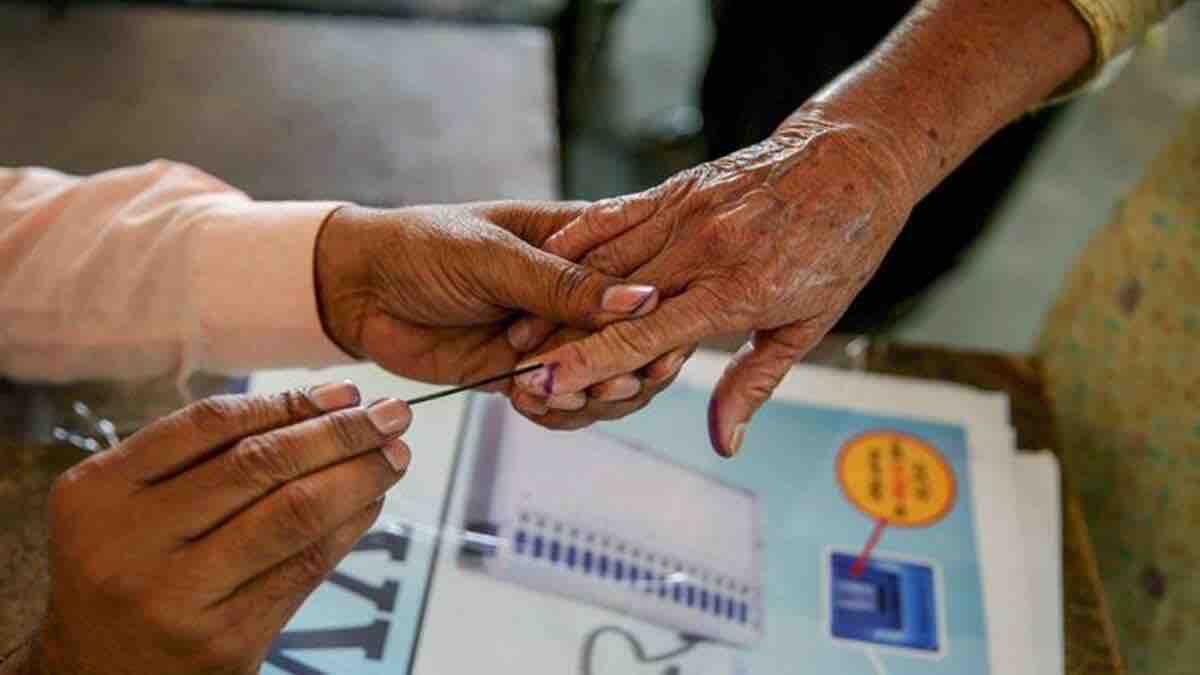he Delhi High Court on Monday refused to entertain a plea seeking to ascertain the feasibility of conducting elections for Lok Sabha and legislative assemblies simultaneously in 2024 and asked the Election Commission of India and the Centre to look into the aspect.
A bench headed by Chief Justice Satish Chandra Sharma said the Election Commission (EC) was the “master of elections” and a court cannot curtail the term of State assemblies.
The petitioner advocate Ashwini Kumar Upadhyay sought directions to the Centre and the EC to consider conducting simultaneous Lok Sabha and assembly elections to save money, reduce burden on security forces and public administration.

The petition said the elections to assemblies whose terms are expiring in 2023 and 2024 may be brought together with the 2024 Lok Sabha polls by curtailing and extending the tenure.
The court said it was not the framer of law and it cannot pass directions sought by the petitioner.
“We are not framers of law. It is the domain of Election Commission to decide when elections will take place. We know our limitations. We are not the lawmakers; we ensure compliance of law. Election Commission will look into your representation. Nothing beyond that,” said the bench also comprising Justice Subramonium Prasad.
“They are the master of elections. They are a constitutional body. They will look into it. We can’t curtail the term of the assemblies like this,” said the court.
The EC, represented by lawyer Sidhant Kumar, said while the body is “logistically ready to conduct” simultaneous elections, there has to be appropriate amendments to the existing law, which can only be brought by Parliament.
“It is for Parliament to consider (to bring amendments to the existing law). We are bound to conduct elections in accordance with law,” Kumar said.
He also said that election schedule is the sole discretion of the EC.
Petitioner said the EC should “start the dialogue” and urged the court to direct the body to decide the plea as a representation.
“The writ petition is disposed of with a direction to the respondents to consider the writ petition as a representation in accordance with law,” the court directed.
The petitioner also sought to direct the Centre and Commission to ascertain the feasibility of conducting elections on Saturday, Sunday and some holiday to save time of schools, colleges, universities, service industries and manufacturing organisations.
The plea claimed that as per a provisional estimate, the conduct of the 2014 Lok Sabha elections entailed an expenditure of almost Rs 4,500 crore and it is estimated that an undeclared Rs 30,000 crore was spent on the 2014 Lok Sabha polls.
Thus, doing away with the several separate elections every year is likely to reduce expenditure substantially, it said.
The plea contended that if consensus evolves among political parties, assembly elections of 16 States — Meghalaya, Nagaland, Tripura, Karnataka, Chhattisgarh, Madhya Pradesh, Mizoram, Rajasthan, Telangana, Sikkim, Andhra Pradesh, Arunachal Pradesh, Odisha, Haryana, Maharashtra and Jharkhand can be held with 2024 General Elections.
The plea claimed that conducting elections together will ensure timely implementation of government policies and control election paralysis.
“There are many advantages in holding the Lok Sabha, state legislative assemblies, panchayats and municipal body elections together. It would reduce the time and cost involved in conducting elections in terms of use of paramilitary forces, government staff on election duty and EC staff organising booths, electronic voting machines and voter slips etc,” it stated.
“In addition, the cost of campaigning for parties would be less. The imposition of the Model Code of Conduct delays implementation of central and state government projects and welfare schemes and takes away time and effort from governance issues,” it claimed.
The petition also said the need for simultaneous elections have been discussed and debated for a long time and even the Law Commission of India in its 170th report on Reform of Electoral Laws has suggested simultaneous elections to Lok Sabha and state legislative assemblies for the sake of stability in governance. But the Centre and ECI did not take appropriate steps.







